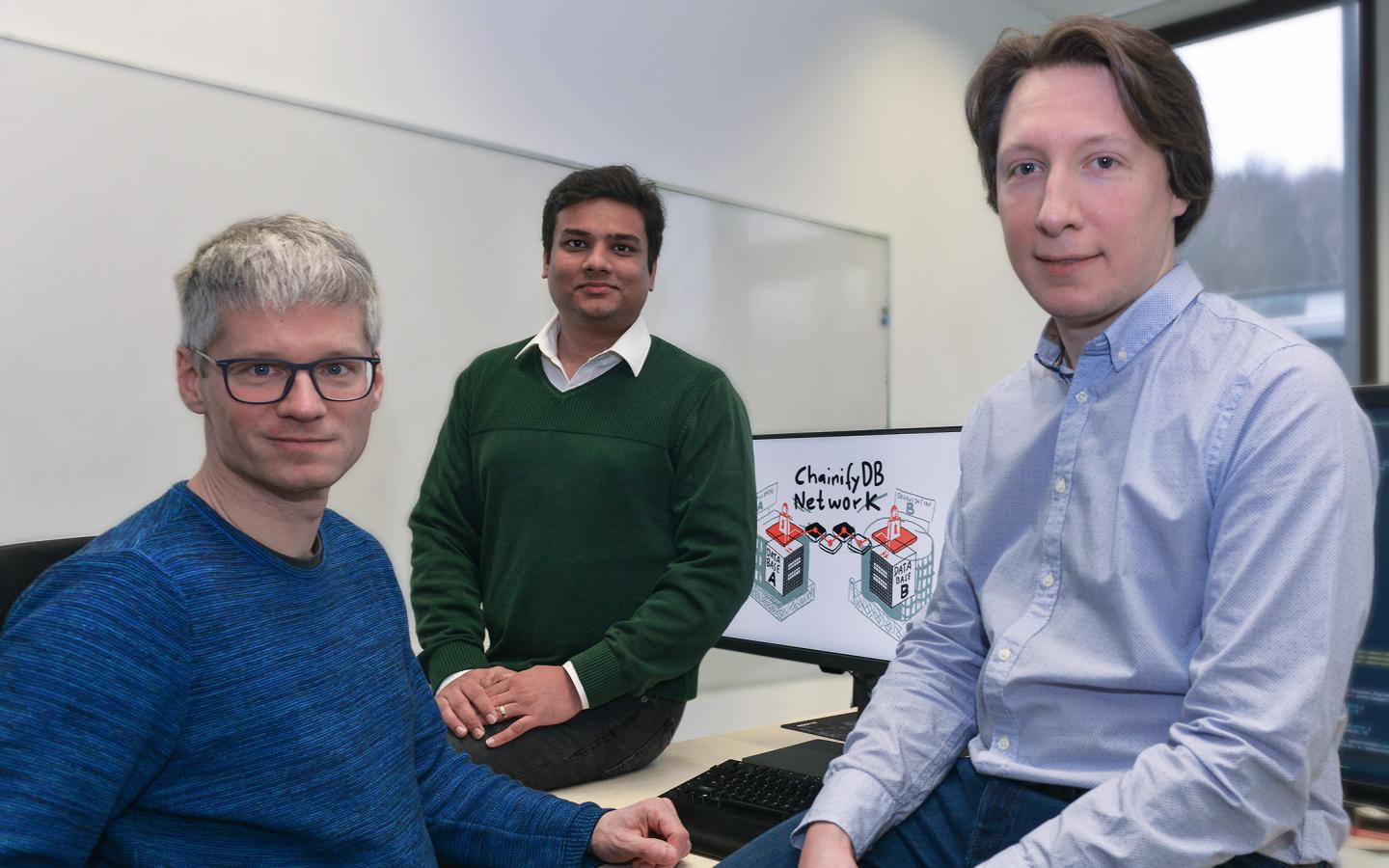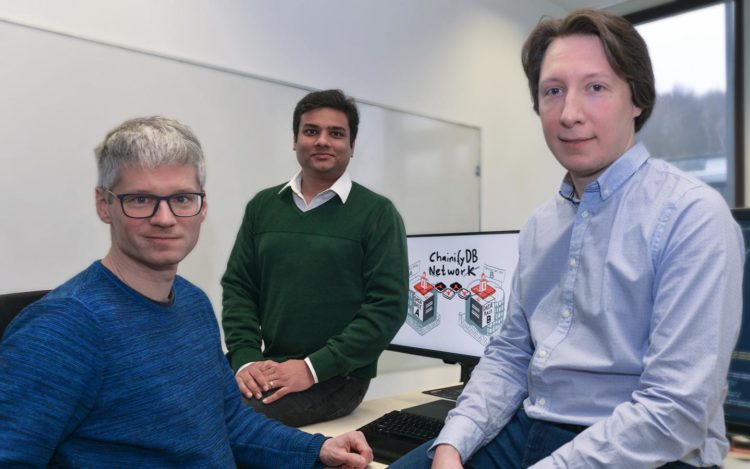
Credit: Joerg Puetz
In order to bring this Software, called “ChainifyDB” to market, the Federal Ministry of Education and Research is supporting the Saarbrücken researchers’ start-up, which is currently being founded, with 840,000 euros.
“Our software resembles keyhole surgery. With a barely noticeable procedure we enhance existing database infrastructures with blockchain-based security features. Our Software is seamlessly compatible with the most common database management systems, which drastically reduces the barrier to entry for secure digital transactions,” explains Jens Dittrich, Professor of Computer Science at Saarland University. The system offers various mechanisms for a trustworthy data exchange between several parties. The following example shows one of its use cases:
Assume some doctors are treating the same patient and want to maintain his or her patient file together. To do this, the doctors would have to install the Saarbrücken researchers’ software on their existing database management systems. Then, they could jointly create a data network. In this network, the doctors set up a shared table in which they enter the patient file for the shared patient. “If a doctor changes something in his table, it affects all other tables in the network. Subsequent changes to older table states are only possible if all doctors in the network agree,” explains Jens Dittrich. Another special feature: If something about the table is changed, the focus is not on the change itself, but on its result. If the result is identical in all tables in the network, the changes can be accepted. If not, the consensus process starts again. “This makes the system tamper-proof and guarantees that all network participants’ tables always have the same status. Furthermore, only the shared data in the connected tables is visible to other network participants; all other contents of the home database remain private”, emphasizes Dr. Felix Martin Schuhknecht, Principal Investigator of the project. He is doing research relating to the software together with Ankur Sharma in the Big Data Analytics Group at Saarland University.
The new software offers advantages especially for security-critical situations, such as hacker attacks or when business partners cannot completely trust each other. Malicious participants can be excluded from a network without impairing its functionality. If a former participant is to be reinstated, the remaining network participants only have to agree on a “correct” table state. The previously suspended partner can then be set to this state. “As far as we know, this function is not yet offered by any comparable software,” adds Dittrich.
“ChainifyDB” is a project of Saarland University, located at the Saarland Informatics Campus. It is financed with funds of the “StartUpSecure” initiative within the Federal Ministry of Education and Research, which aims to bring the ideas of IT security start-ups quickly into application. The Saarbrücken researchers were supported by the startup incubator of the CISPA – Helmholtz Center for Information Security. The project creates eight scientific jobs.
###
Scientific Contacts:
Prof. Dr. Jens Dittrich
Tel.: (+49 681) 30270141
[email protected]
Dr. Felix Martin Schuhknecht
Tel.: (+49 681) 30270146
[email protected]
Ankur Sharma
Tel.: (+49 681) 30270144
[email protected]
Editor:
Philipp Zapf-Schramm
Competence Center Computer Science Saarland
Saarland Informatics Campus
Telefon: +49 681 302-70741
E-Mail: [email protected]
Background Saarland Informatics Campus:
800 researchers and 2000 students from 81 nations make the Saarland Informatics Campus (SIC) one of the leading locations for computer science in Germany and Europe. Five world-renowned research institutes, namely the German Research Center for Artificial Intelligence (DFKI), the Max Planck Institute for Computer Science, the Max Planck Institute for Software Systems, the Center for Bioinformatics and the Cluster for “Multimodal Computing and Interaction” as well as three networked university departments and 18 academic programs cover the entire spectrum of computer science topics
Public relations work at the Saarland Informatics Campus is supported by the Competence Center Computer Science Saarland, funded by the European Regional Development Fund (ERDF) and the Saarland State Chancellery.
Media Contact
Philipp Zapf-Schramm
[email protected]
49-681-302-70741





